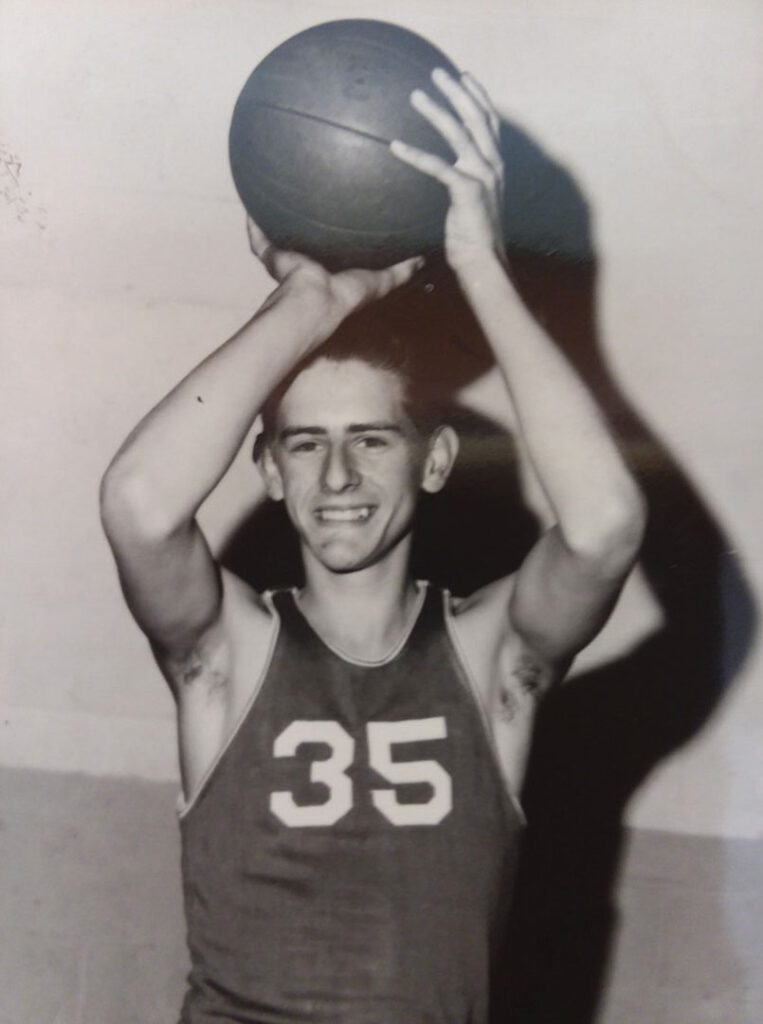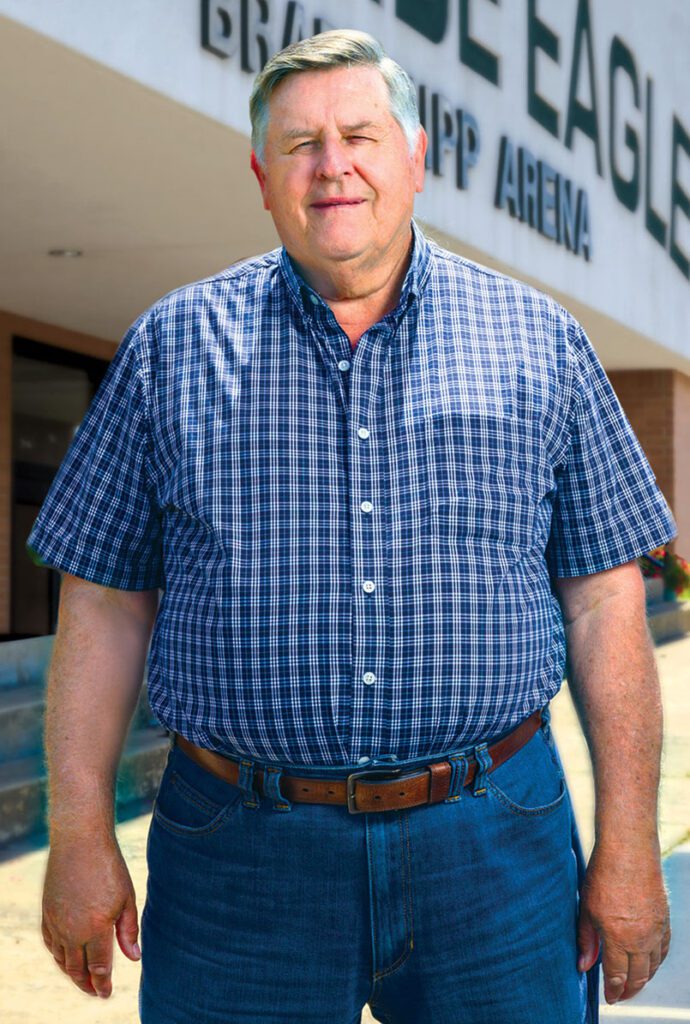30 Jun 2022 Celebrating Athletic Excellence: Cleburne County’s Eddy Hipp
By Dr. Robert Reising
His record as a head coach of girls basketball was amazing, absolutely spectacular. Not only did he win a mind-boggling 732 games, but his multi-decade winning percentage of 72% came on the heels of a dismal, discouraging, three-season coaching debut of just 14 victories in 69 contests. Moreover, in an era in which winning coaches were seldom one-school fixtures, the imagination is staggered when asked to believe that in the subsequent 28 years, his teams suffered but two losing seasons while ending 25 with 20 wins or more, nine with at least 30 triumphs and all at one school. Eddie Hipp revived girls basketball at West Side High School and proceeded to bring statewide respect to his program while gaining iconic status that any coach, anywhere, at any level, can envy.

Cleburne County has been the sole recipient of Hipp’s lifelong love of place. Born in tiny Prim on April 9, 1951, he received his first three grades of education in a one-room schoolhouse before transferring to the facility he was to enjoy far into the future. In May of 1969, armed with an A and B transcript, he proudly graduated from West Side High.
Supplementing his commendable grades was participation in ninth- and 10th-grade junior varsity basketball, followed by two seasons of varsity play. In his senior year, he came into his own, leading the Eagles in rebounding and foul shooting while gaining the team’s Most Valuable Player honors.
His impressive credentials qualified him for sizable financial assistance at Lyon College, where standing barely an inch over 6 feet tall, he soon learned that he was an undersized basketball center destined for virtually no playing time. At age 18, however, he was mature beyond his years, and accepted the end of his playing career while devoting full-time attention to his studies and his marriage.
Just three months after earning his diploma, in August of 1969, he wed his high-school sweetheart, Deborah Bittle of across-county Quitman. In a handful of weeks, the couple will observe their 53rd wedding anniversary.
Completing his four-year Lyon program in the spring of 1973, he immediately launched his career in math teaching and girls’ basketball coaching at his alma mater. The challenge of the latter was daunting. The school had been without girls’ basketball for a decade. At the time, it was vastly different from the men’s sport he had played, and few of his players were mature juniors or seniors with experience in any high school sports. Few, too, had played organized basketball anywhere or had even shot or dribbled basketballs in backyards. Hipp’s first seasons held little chance for success.

He admits he was discouraged. As the first seasons passed, the flood of defeats overwhelmed his soul and psyche. Finally, well into the three years, he sought a new path, abandoning his apathy and surrendering to the religion of his youth. He renewed his Christian faith, desiring in return only success for the girls he coached, that alone. Also, vowing to immerse himself in the study of girls’ basketball, he committed to perfect attendance at clinics, lectures, and workshops on the topic within driving distance of West Side.
During the same period, the West Side Girls, game-experienced or not, toiled to improve their capabilities in the revived sport. Spending extra time in school practice by arriving early and/or staying late, challenging friends elsewhere in one-on-one playground competition, studying more advanced players in action, playing alone against invisible foes in their backyards far into the twilight — these and other strategies typified their commitment to exceeding the norm in their quest for improvement.
From the new routines and exhausting labors emerged miraculous results. Thirteen consecutive victory-filled seasons suddenly exploded upon coach and players, among them West Side’s first two 30-win campaigns. Hipp and his teams were elated and grateful as county, conference, district, and regional titles fell to them in abundance. By 1994, they had soared to a Final Four spot in the state tournament, only to have the state title escape their grasp.
Yet confidence quickly replaced disappointment. The next year would be different, Hipp and the Eagles vowed. Between seasons, they worked ultra-hard on and off the court, and another trip to the state tournament brought them the success they sought: the state title. They were Arkansas’s Class B best.
Players and fans were ecstatic; Hipp was proud but self-effacing, attributing the championship to “my players and the Almighty.” Nor did the final nine seasons of his career ever witness a change of belief. Through his final game in 2004, his third consecutive 30-win season, his religious fervor remained unshakeable.
Retired in Cleburne with his wife, he enjoys the two farms he owns and Woodrow Baptist Church, near Prim, where he has taught Sunday School for almost 50 years. Only rarely and reluctantly does he discuss his superb credentials.
West Side, Cleburne County, and the 501 all have reasons galore to be proud of Eddie Hipp, an exceptional coach, and a better human.
- Celebrating Athletic Excellence: Lonoke County’s Eddie Hamm - September 30, 2024
- Celebrating Athletic Excellence: Conway County’s Bud Mobley - September 8, 2024
- Celebrating Athletic Excellence: Cleburne County’s Keith Cornett - July 31, 2024









